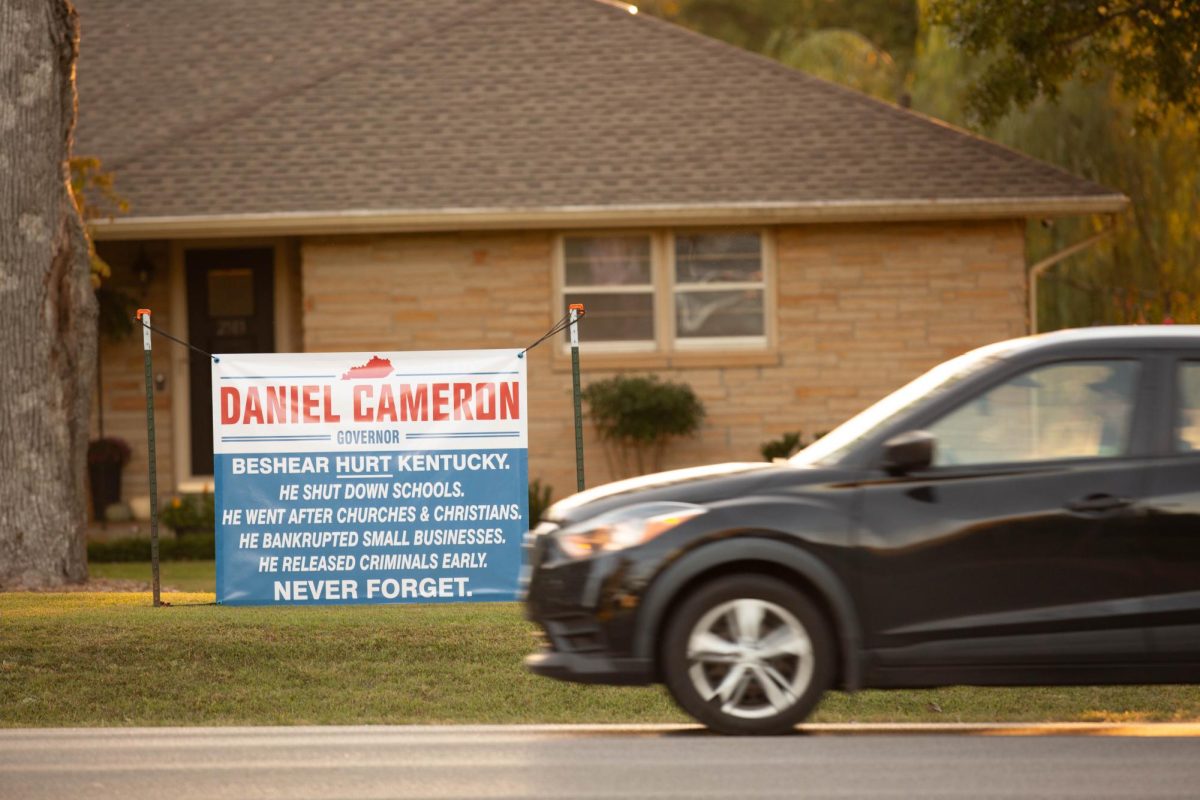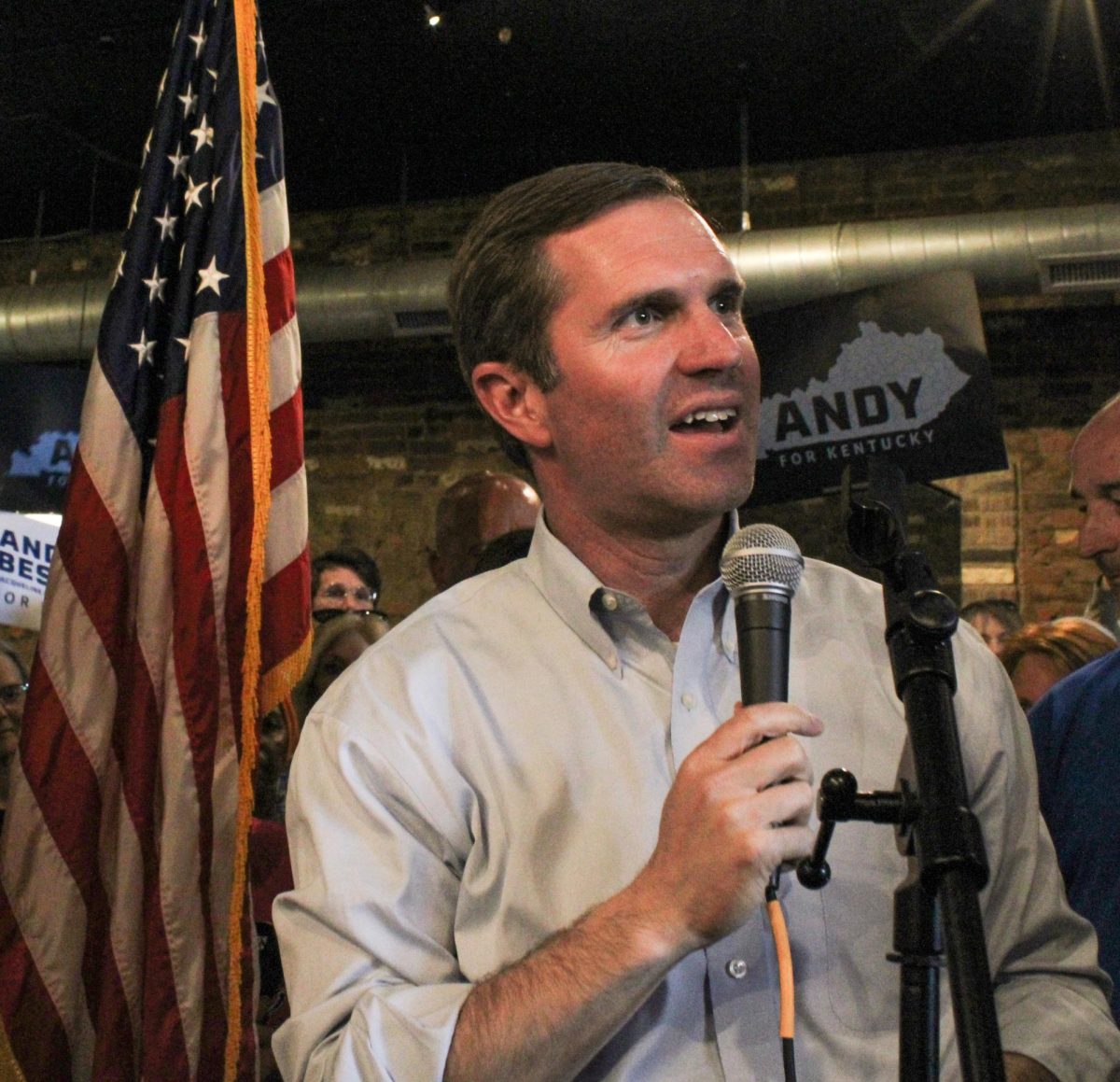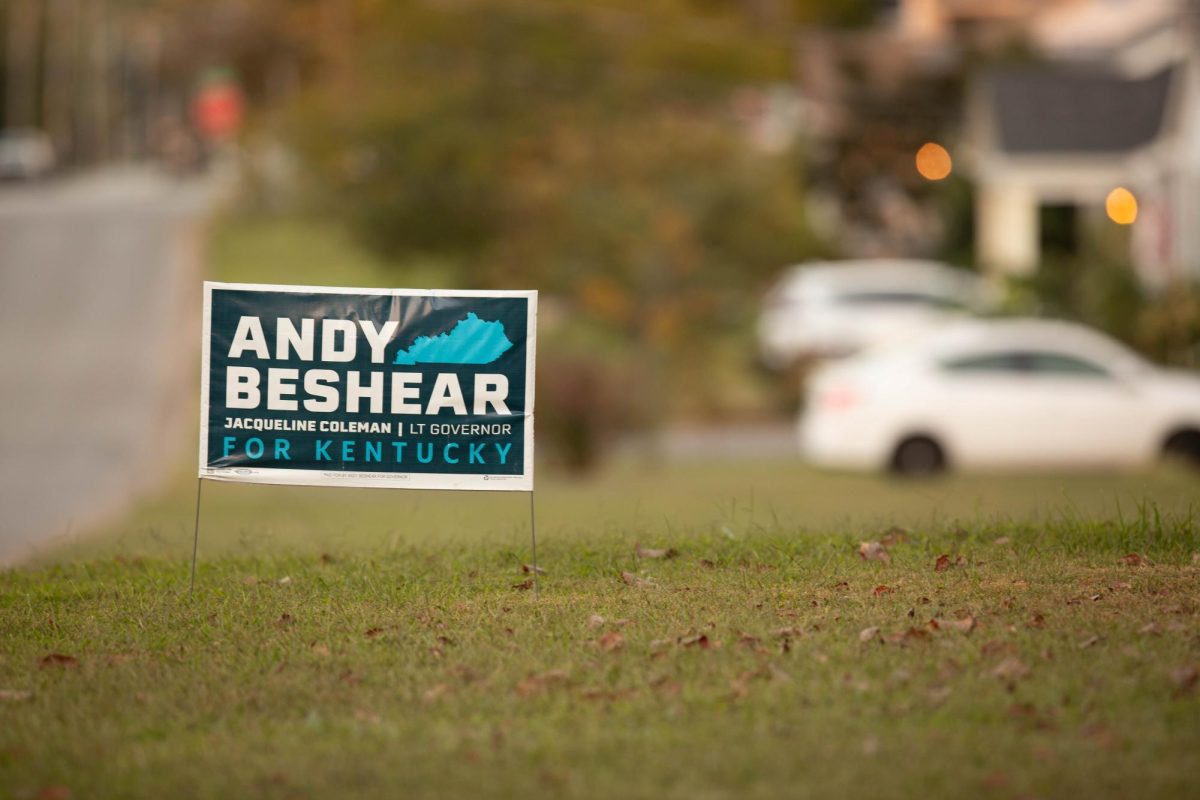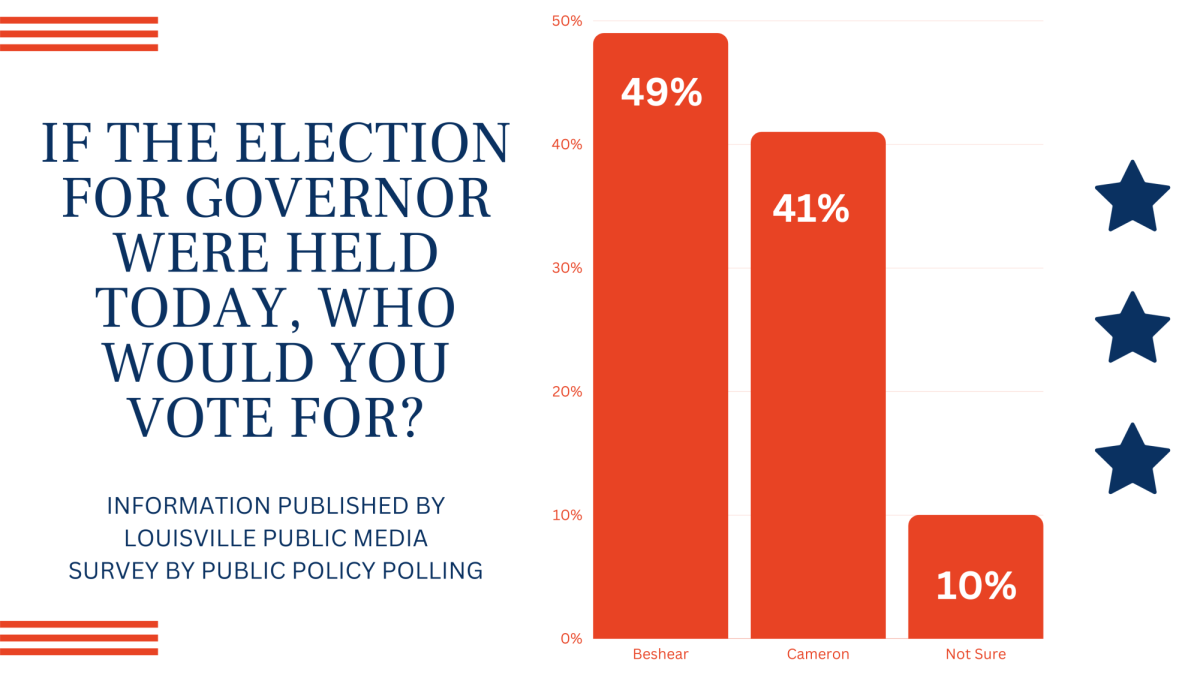Warren County and Bowling Green are poised to play a pivotal role in this year’s Kentucky gubernatorial election, with a teetering split between registered Democratic and Republican voters as well as its historical swing-vote tendency.
“Democrats know they are going to win Louisville and Lexington, but for a statewide candidate to do well, they’ve got to do well in these other counties, and certainly Warren County is one of those,” Scott Lasley, a Republican who serves as magistrate for Warren County’s first district, said.
Warren County was a predominantly Democratic stronghold up until the 1990s when candidates such as Mike Buchanon, the former Warren County judge executive, started winning elections to hold office as a Republican.
Brett Guthrie, also a Republican, was elected in 1998 to represent the 32nd district in the Kentucky Senate until 2008, when he was elected to represent Kentucky’s Second Congressional District in the U.S House of Representatives. He has been reelected to the seat every two years since.
Historically, the Kentucky governor’s seat was predominantly Democratic, but since the 2003 election, has alternated between Democratic and Republican winners.
Andy Beshear, the current Kentucky governor, won the office in the 2019 election by a slim margin of 5,136 votes statewide against incumbent Gov. Matt Bevin, a Republican.
Warren County was a battleground in that election, with Beshear winning the county by a margin of 1,131 votes against Bevin, according to the State Board of Elections.
William Compton, a Democrat and city commissioner for Plum Springs, said approximately one fifth of the votes of Beshear’s margin of victory in his initial campaign for governor came from Warren County.
“Every vote in this county is important,” Compton said.
As of Sept. 5, Warren County was visited most by both gubernatorial candidates of Kentucky throughout the state with five visits each.
In Warren County, the split between registered Republicans and Democrats is slim, with the Republicans leading by 1,343 voters. Warren County has the potential to swing either way, putting that opportunity in the hands of the voters.
Republican Warren County Judge Executive Doug Gorman outlined the issues that candidates should focus on if they intend to win Warren County in what is anticipated to be a close race.

“There are three things really important for Warren County: the economy, healthcare and education,” Gorman said. He believes whichever candidate can have the most impact on those subjects will win.
Gorman also spoke to the importance of casting a vote.
“For us to have the best environment and the best voter experience, we need to continue to try to increase the number of registered voters to vote,” Gorman said.
Kevin Modlin, a WKU political science professor, is curious to see if the vote in Warren County this year is affected by Republicans who may have only voted Beshear in the past due to Bevin’s comments about teachers during his tenure as governor.
Unlike Compton, Modlin said voting for a particular candidate is often about party identity and association more than a particular candidate’s platforms.
“If I were interested in wanting to know how this would go, I would be looking at those tendencies,” Modlin said. “We are people of habit.”
WKU’s presence in Bowling Green may contribute to the county’s party split. Students have the ability to vote, request absentee ballots or register to vote in their college town.
Jeanie Smith, chair of the Warren County Democratic Party, maintains that young voters are critical to the gubernatorial election process.
“Young people could determine every election in America,” Smith said. “I would encourage people to understand the power of a vote.”

Smith also discussed the closeness of votes in the gubernatorial race 2019.
“In the last gubernatorial election, Warren County was the only Democratic county west of I-65,” Smith said.
Smith also believes that education will be an extremely important platform for this race.
“If we are looking at the state, we had a Democratic stronghold that was very important to the governor’s election,” Smith said. “I think that’s particularly important because Warren County values education and Governor Beshear is a pro-education, pro-teacher governor. Warren Countians know, it doesn’t matter your political party, we love our schools, and we love our teachers, and we want to make sure that they stay really strong and healthy.”

Additionally, Smith advises citizens of Warren County to plan out their voting location and method, as Warren County has 12 polling locations, even though counties of similar size often have many more places to vote. Smith attributes this to voter suppression and said that lower income citizens who don’t have access to transportation will find it more difficult to get to a polling location to vote.
Lasley also emphasized the importance of research before voting.
“Try to figure out what issues are important to you, and what issues are important to the candidates,” Lasley said. “Part of it is also trying to figure out who is going to have a greater effect on policy. Try to take some more time to learn about the candidates and read articles.”
Both Cameron and Beshear have a wide variety of platforms that are important to them to continue to grow the commonwealth of Kentucky.
“Listen, when we’re talking about workforce, it’s about hope. It’s about providing what’s needed. It’s about a message of public education, health care, and childcare,” Beshear said.
Beshear believes strongly in public education, free universal pre-K, and continuing to grow the state’s economy. Under Beshear, Kentucky has legalized sports betting, expanded Medicaid applicability and created new jobs through the construction of a new Ford plant.
Cameron, Kentucky’s attorney general, has a platform that focuses on similar goals. He wants to continue to grow Kentucky’s job force and gain more employment, but intends on doing this in a few different ways.

“If you expanded Medicaid coverage to able-bodied individuals, why we didn’t condition that to have some sort of work requirement, particularly if we think about it in the lens of wanting to keep the program solid for means medically necessary,” Cameron said at a gubernatorial forum hosted by the Kentucky Chamber of Commerce.
Cameron also wants to eliminate Kentucky individual income tax, while continuing to grow Kentucky’s community and lower its crime rate.
“I want to make sure we can keep our taxes as low as we can to make sure that our education system is as good as it can be and make sure that we have that low crime so that people want to stay here or bring their families here and decide to move here and thrive,” Cameron said.
Despite who wins this gubernatorial election, Bowling Green Mayor Todd Alcott said legislators will continue on with their job as always.
“Regardless of the politics of our next governor, we want our governor to be part of our team, and continue to be the shining example to our nation, of how leadership transforms prosperity,” Alcott said.
News Reporter Bailey Reed can be reached at bailey.reed740@topper. wku.edu

